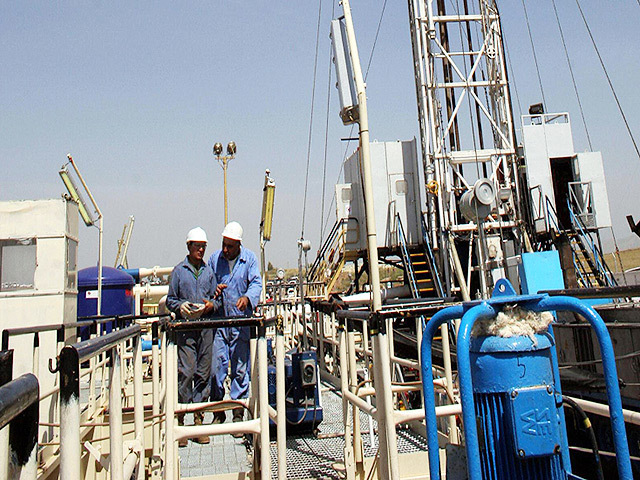
OPEC’s second-largest producer is stepping up the campaign to get more for its oil by looking to revamp the way it sells crude to its biggest customers.
Iraq is considering plans to use a new reference price for sales to Asia, according to traders, who received a notice from the state oil company SOMO. The producer is proposing to use a contract traded on the Dubai Mercantile Exchange as a benchmark for pricing Basrah crude, replacing the formula it currently uses along with competitors such as Saudi Arabia, Kuwait and Iran.
As a persistent oversupply caps oil prices around $50 a barrel and OPEC’s output quotas limits production, Iraq’s looking to squeeze every drop of value out of its crude. SOMO has already sold its first ever cargo in a new auction system this year and is now looking to link sales to prices published by DME because it thinks the current mechanism undervalues the oil, according to industry consultant Energy Aspects Ltd.
“The Iraqis are probably looking at the high premiums paid for their oil that’s over and beyond their announced official prices, and recognizing that there’s money left on the table,” said Nevyn Nah, a Singapore-based analyst at Energy Aspects. “I’d say SOMO is steps ahead of the rest of Middle East in its intention to capture their oil’s value, but the proposal needs some refinement and feedback from buyers.”
SOMO didn’t respond to Bloomberg’s request for a comment.
Price Proposal
In the note to Asian buyers, SOMO said it’s considering a benchmark based off the DME Oman contract two months before the Iraqi cargoes are scheduled to load, according to the traders. That’s a shift from the current practice of using the mean of Oman and Dubai crude prices in the loading month, which are published by S&P Global Platts. SOMO has asked for customers’ feedback by August 31, according to the traders.
There are potential cost implications for buyers under the proposed system. They’d have to hedge the risk that prices will fluctuate in the time between the pricing month and the month of loading, and that represents an additional expense.
“There’s a huge flat-price exposure for refiners who lock in their Basrah crude price three to four months before the oil is refined into products, such as diesel, and sold,” Nah said. Most Asian refiners typically secure the profits from turning crude into fuel on the basis of benchmark Dubai and Brent crude. If Iraq sells on the basis of DME Oman, refiners would also need to hedge against potential fluctuations in the spread between those reference prices, he said.
While cargoes loading in any given month would be priced two months in advance, SOMO typically only tells its customers whether they’ll be allocated a shipment about one month before it’s scheduled to load. That means buyers potentially won’t know whether to hedge or not because they won’t be sure if they’ll be allocated a cargo.
Competing Oil
It’ll also be hard to assess the competitiveness of Iraqi crude relative to rival oil from Saudi Arabia or Iran, because they’ll have different benchmarks and pricing months, according to Tushar Tarun Bansal, director at Ivy Global Energy.
This month, SOMO set the official price for Basrah Heavy exports to Asia at the smallest discount ever to Arab Heavy crude marketed by Saudi Arabian Oil Co., or Aramco. The August official price of Basrah Light to Asia was at its widest premium to Arab Medium crude since 2012, indicating the rising price of the Iraqi grade versus its Saudi alternative.
“While the proposed methodology by SOMO is a shift away from equations used by large producers like Saudi Arabia and Iran, it’s certainly a move in the right direction,” said Bansal said. “It’s a step toward a more sophisticated way of pricing oil, but still some distance away from a more liberalized market.”
